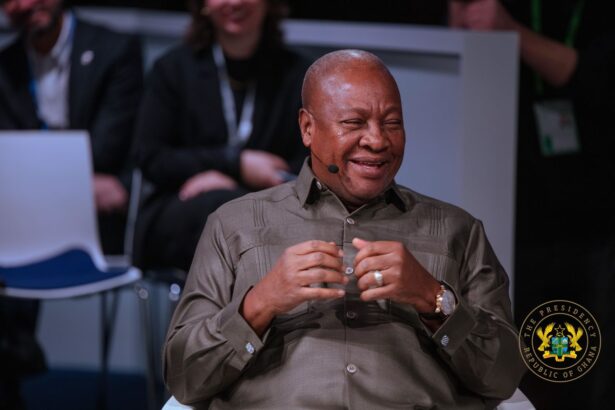President John Dramani Mahama has called on African nations, including Ghana, to boost food production and reduce dependence on foreign aid, following the suspension of the U.S. Agency for International Development (USAID) support, which has resulted in a $156 million shortfall in the country’s revenue.
Speaking at the Munich Security Conference, Mahama framed the USAID suspension as an opportunity for Africa to enhance agricultural output and achieve food security.
He stressed the importance of investing in local food production and trade infrastructure rather than relying on external assistance.
“If that aid stops coming, we must make the necessary investments to make our farmers more productive and establish food security within Africa, rather than waiting for USAID handouts,” Mahama said.
President Mahama also pointed to the African Continental Free Trade Area (AfCFTA) as a critical step toward economic independence.
He highlighted the importance of improving intra-African trade infrastructure, which has been historically hindered by colonial-era trade patterns prioritizing exports to Europe over regional exchanges.
“We need to develop infrastructure to exchange goods amongst ourselves,” Mahama noted. “If we can achieve the free movement of goods and services, it will fill a huge gap in South-South trade.”
The impact of USAID’s suspension is not only being felt in Africa but also by U.S. farmers, President Mahama noted.
He explained that USAID’s food aid programs had previously absorbed surplus agricultural products from the U.S., which are now left without a primary outlet.
“U.S. farmers are beginning to complain because USAID was the biggest mopper of excess food for food aid to Africa, and now those auctions aren’t happening,” Mr.Mahama said.
While acknowledging the challenges ahead, Mahama expressed optimism about Africa’s ability to adapt to the new circumstances “Definitely, we’ll learn to be more self-reliant as a continent and trade more amongst ourselves,” he said. “There’s a lot of room for expanding trade, and this could be the turning point “






